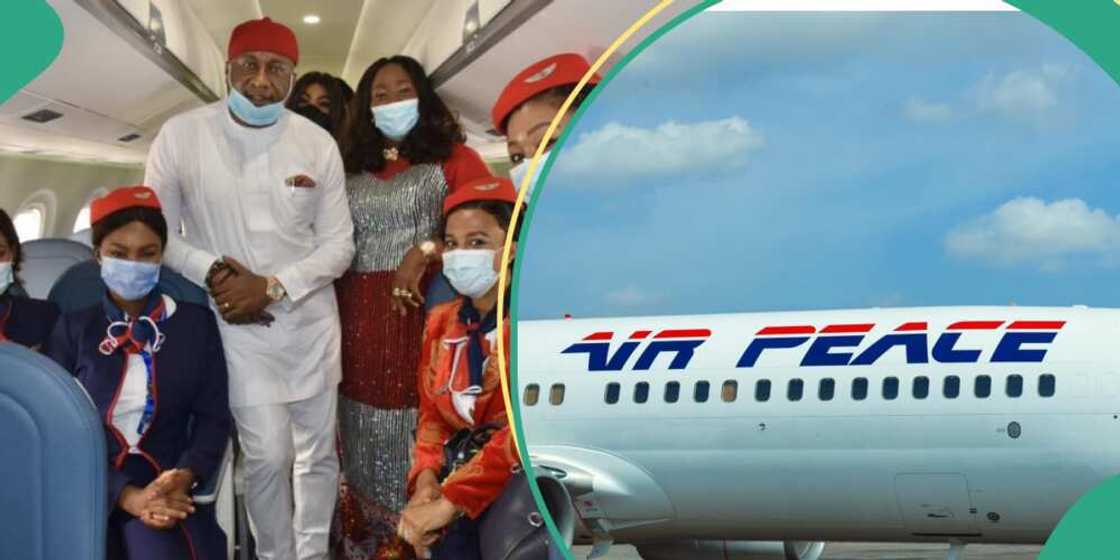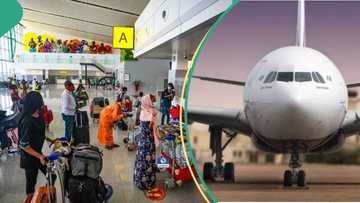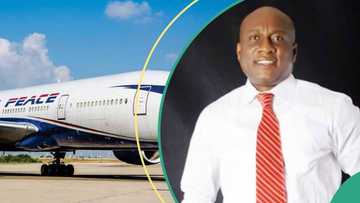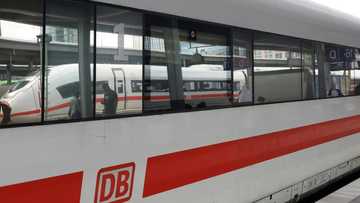Nigerians Desert Local Airlines as Air Peace, Max Air, Others Hike Fares
- Nigerian airlines have hiked their charges despite low passenger traffic in most airports nationwide
- The airlines complain of low passenger traffic, leading to most of them flying half-empty
- Many airports nationwide are also seeing fewer passenger traffic, leading to fewer flight schedules
Legit.ng’s Pascal Oparada has reported on tech, energy, stocks, investment and the economy for over a decade.
Following the high cost of airfares in Nigeria, many passengers opt for alternative means of transport, leading to a drop in passenger traffic in Nigerian airports.
The average airfare for an hour's flight from Abuja to Lagos has risen to between N150,000 and N200,000 for a one-way ticket, depending on the purchase time. The fares could be slightly cheaper if purchased a month in advance.

Source: UGC
Many airports deserted due to high fares
Findings show that airlines flying local routes are barely full due to low passenger traffic, choosing to travel by road instead despite the risks involved.
Many airports nationwide face severe operational challenges caused by revenue and a decline in aircraft plying certain roots.
Airlines have adjusted fares to increase passenger volume despite declining passenger traffic.
Some airports, which witnessed high passenger traffic in the past, are now experiencing low passenger turnout, with many airlines scaling down schedules as airports receive fewer aircraft.
The Asaba International Airport and the Anambra Airport, which used to receive about five flights daily, now receive about one or two, respectively.
The scarcity of aircraft affects airlines
Most airlines’ aircraft are grounded or sent abroad for routine maintenance. The operators lament the scarcity of foreign exchange to retrieve them.
Also, the grounding of airline operations in Nigeria by the Nigerian Civil Aviation Authority (NCCA) has contributed to the absence of aircraft, causing a hike in fares.
Recently, Max Air suspended operations indefinitely for undisclosed reasons While the NCAA grounded Dana Air’s fleet.
Airfares have risen across many routes due to increased operational costs caused by increased aviation fuel and service costs.
Airlines complain of low patronage
The New Telegraph reports that while Nigerian airlines charge in the local currency, the naira, they maintain, repair, purchase parts and pay insurance in foreign currencies, impacting their profit margins.
Obiora Okonkwo, chairman of United Nigeria Airlines and spokesman for Airline Operators of Nigeria (AON), said that the current economic hardship in Nigeria has caused passenger traffic to plummet.
His said:
“Passenger traffic has shrunk because even those on social engagement like weddings, burials, and other ceremonies may not be inclined to spend money on flight tickets; they would rather send credit alerts to those hosting the events who would appreciate such gestures. So, they pay in – instead of appearing in person.”
FG takes particular action to crash airfares
Legit.ng earlier reported that the Nigerian government had signed the Cape Town Convention (CTC) Practice to reduce airlines’ operational costs.
The Chief Judge of the Federal High Court, Justice Terhemba Tsoho, signed the CTC Practice Direction during a stakeholders’ meeting of the Presidential Business Environment Council (PEBEC), which Vice President Kashim Shettima presided over in Abuja.
The Cape Town Convention becomes active in Nigeria, allowing airlines to reduce their insurance costs, restoring investors’ confidence in the sector, and enabling domestic airlines to dry-lease aircraft.
Proofread by Kola Muhammed, journalist and copyeditor at Legit.ng
PAY ATTENTION: Сheck out news that is picked exactly for YOU ➡️ find the “Recommended for you” block on the home page and enjoy!
Source: Legit.ng




